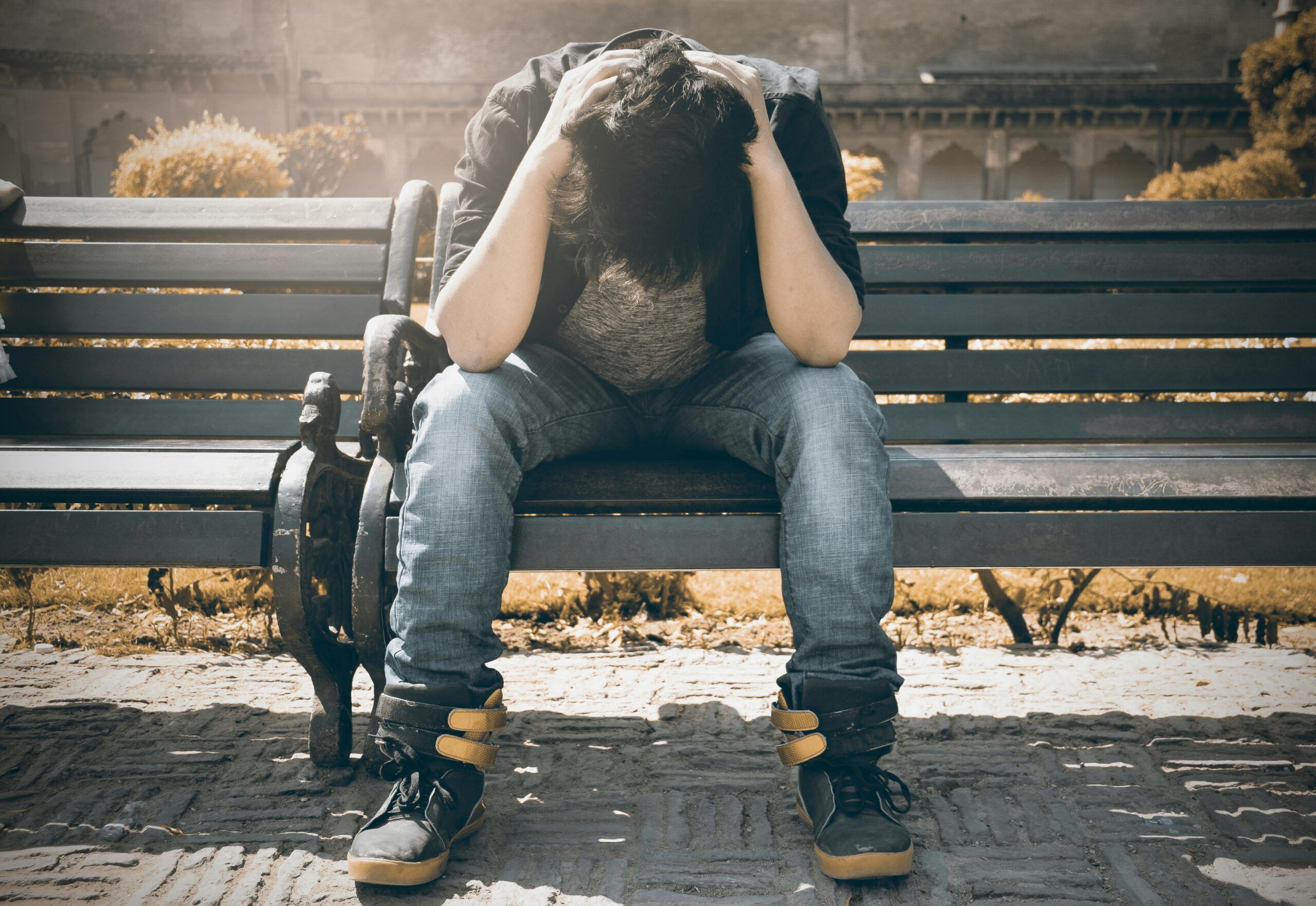Anxiety And Depression Treatment In Lexington, KY
Anxiety and depression encompass an array of similar mental health symptoms. These disorders are among the most common mental health concerns in the United States.
Our anxiety and depression treatment in Lexington offers hope to the increasing rates of depression among adults in the U.S.
Rates of Anxiety and Depression in the U.S. Today
According to the Centers for Disease Control and Prevention (CDC), the rates of adults with recent symptoms of depression or anxiety rose from 36.4% to 41.5% during the months of August 2020 to February 2021. In addition, the percentage of adults with an unmet mental health care need has increased from 9.2% to 11.7%.
However, there is hope for recovery from anxiety and depression. Lexington Addiction Center is here for those with anxiety and depression as well as co-occurring substance use disorders.
What is Depression?

Often, depression is misunderstood by many people without the disorder. Depression is more than just feeling sad, moody, or upset. This mental health disorder impacts a person’s life in many ways, and they cannot simply “snap out of it.”
Depression causes significant impairments in a person’s ability to function in their everyday lives. In some cases, depression can be life-threatening, as it might lead to reckless behaviors, addiction, or suicide.
Signs and Symptoms of Depression
Depressive disorders also affect each person differently. Therefore, symptoms occur on a spectrum of severity. Some people show several signs while others only have a few symptoms.
Common symptoms of depression include the following:
- Perpetual feelings of sadness and excessive worry
- Feeling hopeless or helpless
- Frustration and irritability
- Changes in sleeping habits and appetite
- Feeling lethargic and tired most of the time
- Unwarranted feelings of guilt and worthlessness
- Loss of interest in pleasurable activities and hobbies
- Withdrawing from loved ones and isolating
- Trouble concentrating and making decisions
- Bodily pains and headaches with no physical cause
- Thoughts of death and suicidal ideations
- Suicidal behaviors
For a depression diagnosis, symptoms must last longer than two weeks. In addition, there are some features among symptoms that can be further categorized.
What Are the Types of Depression?
There are different types of depression that include common symptoms as well as unique features. Some types of depression vary based on severity and others vary on context.
For instance, some depression disorders affect a person all or most of the time while others only appear under certain conditions.
Types of depressive disorders include the following:
This type of depression is one of the most common types. A person experiences a majority of the above-mentioned symptoms for about two weeks. These symptoms impair their ability to function in daily life.
This disorder is similar to major depression. However, those with dysthymia can often function in daily life. Yet, they feel an underlying sadness or dissatisfaction with life that can last long periods of time.
After giving birth, most women experience some form of postpartum depression. These symptoms include intrusive fears of harming their newborn, loneliness, uncontrollable sadness, and other depressive symptoms. For some women, however, symptoms do not go away on their own without professional help.
SAD is a type of seasonal depression. Most people experience SAD during the winter months or during a decrease in daylight hours, and become temporarily isolated. People with SAD might feel especially anxious and irritable during the winter months.
- This type of depression occurs when a person struggles to adjust to a significant life change. Hence, situational depression is also called an adjustment disorder. A person might struggle to adjust to changes like moving, starting a new job, going to college, death in the family, divorce, or other life events.
Some types of depression can include features of other mental health disorders. For example, some people have hallucinations or delusions that accompany depression. This is called “psychotic depression.”
Others have depression during the depressive stages of bipolar disorder. Depression treatment in Lexington is part of our primary mental health and dual diagnosis treatment programs.

Contact Us
Set yourself free from the struggles of addiction and co-occurring mental health disorders. Reach out to our treatment team in Lexington, Kentucky today.
What is an Anxiety Disorder?
Anxiety disorders create intense feelings of dread, panic, and fear among those with the disorder. Like those with depression, people with anxiety disorders struggle in their daily lives.
They can often go to extreme lengths to avoid situations that trigger their anxiety symptoms. This avoidance behavior impacts their ability to attain their goals or even take care of themselves.
Everyone feels some type of anxiety in their everyday life. In fact, anxiety is a normal feeling in response to stress or facing unknown situations. However, when a person has an anxiety disorder, they have symptoms in relation to normal and expected events of everyday life.
Symptoms of Anxiety Disorders
People with anxiety disorders display physical, mental, and behavioral symptoms. These symptoms can impact a person’s self-esteem and confidence as they often fear situations that most people don’t. When left untreated, a person’s anxiety can worsen over time.
Symptoms of anxiety often occur when a person is presented with a triggering event, person, or situation. Symptoms include the following:
- Profuse sweating
- Increased heart rate
- Dizziness
- Shortness of breath
- Intrusive and uncontrollable thoughts
- Restlessness
- Appetite changes
- Trouble sleeping
- Avoiding certain places, people, or situations
For a diagnosis, these symptoms must interfere with a person’s ability to maintain relationships, pursue life goals, and function in everyday life. Like depression, anxiety disorders can vary among different types.
What Are the Different Types of Anxiety Disorders?
Anxiety disorders include the following:
While everyone has fears or worries about things like health, finances, and relationships, those with GAD experience these feelings almost all the time. When a person has excessive worries about nearly every aspect of their life for about six months, they could have GAD.
Social anxiety is different than personality traits like shyness or introversion. For example, some people might not prefer certain social environments. However, this preference doesn’t mean they have a disorder. In fact, those with social anxiety feel a sense of dread or panic among other people.
Some people with anxiety have panic attacks when triggered. These attacks affect them physically. The person might have a rapid heartbeat, struggle to breathe, and feel as if they are going to die.
When anxiety symptoms are triggered by specific fears, the person could have a phobia. Common phobias include fear of enclosed spaces, crowds, spiders, or flying. While everyone experiences fear, a person with phobia-related anxiety disorders goes out of their way to avoid triggers. For instance, if they fear crowds, they might rely on others to shop for them, as they fear being in a crowded store.
In addition, other mental health disorders feature anxiety symptoms. Sometimes, obsessive-compulsive disorder (OCD) and post-traumatic stress disorder (PTSD) are also considered anxiety disorders. However, since OCD and PTSD have unique features and triggers, they typically require specialized treatment for recovery.
How Are Anxiety and Depression Treated?
Often, these mental health disorders are treated with a combination of psychiatric medications and behavioral therapy. Anxiety and depression treatment in Lexington uses different approaches to help our clients build a plan that works for them.
We offer traditional therapies, like cognitive-behavioral therapy (CBT) as well as innovative techniques such as eye movement desensitization and reprocessing (EMDR). In addition, our treatment center offers holistic therapy to help clients find multiple pathways to health and wellness.
Since anxiety and depression are common triggers of substance abuse, we also have dual diagnosis treatment. This helps those with co-occurring mental health and substance use disorders manage both issues at the same time.
Get Quality Anxiety and Depression Treatment in Lexington, KY
As rates of anxiety and depression increase, the number of those with untreated mental health disorders also rises. Anxiety and depression are among the most common types of mental health disorders. We offer quality treatment for both conditions.
Furthermore, many people with these disorders turn to drugs or alcohol to cope with their symptoms. Fortunately, we provide dual diagnosis treatment for those with co-occurring mental health and substance use disorders.
Contact Lexington Addiction Center today to learn more.
 | Medically Reviewed By: Board-Certified Psychiatrist and Addictionologist |
 | Clinically Reviewed By: Board Certified Clinical Social Worker |
Your Insurance May Cover The Cost Of Detox and Rehab
What We Treat
Contact Us
Set yourself free from the struggles of addiction and co-occurring mental health disorders. Reach out to our treatment team in Lexington, Kentucky today.
Get Family Support Now
Supporting Families Through Recovery
We understand addiction affects the whole family. Our comprehensive family program helps rebuild trust and restore relationships.
Weekly Family Therapy Sessions
Educational Workshops
Support Groups
Communication Skills Training
Get Family Support Now


What Sets Lexington Addiction Center Apart:
Premium Amenities & Personalized Care

Clinician & Medical Owned & Operated

Family Therapy Sessions

Weekly Outings

Twice‑Weekly Individual Therapy

